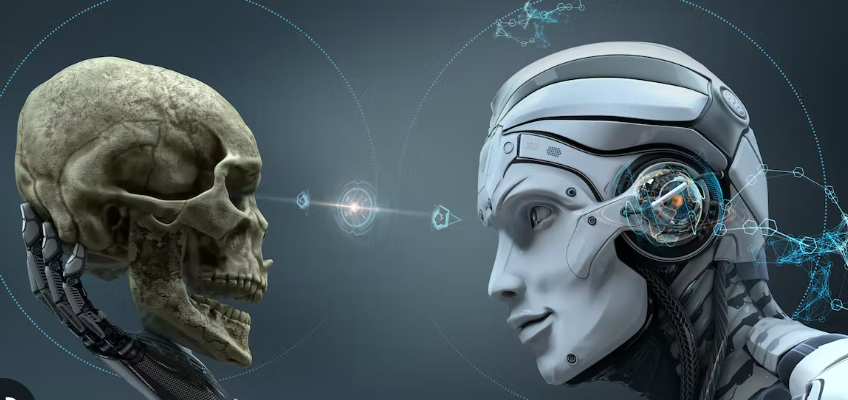“Perfection isn’t human, but it’s still achievable with Artificial Intelligence!”
Introduction
The rise of artificial intelligence (AI) has brought with it a new set of ethical questions and challenges. One of the most important questions is why should artificial intelligence strive to be perfect while humans are not? The perfect AI is one that is capable of performing all the tasks it is programmed to do without any errors and with maximum efficiency. In comparison, humans are imperfect, making mistakes and having limited capabilities. This raises the question of why should AI be perfect while humans are not? This essay will examine the implications of such a situation and discuss the reasons why AI should strive for perfection while humans are not. Additionally, it will look at the potential consequences of such a scenario and consider the implications for the future of AI.
Exploring the Potential of Artificial Intelligence to Achieve Perfection Where Humans Cannot
In this era of rapidly advancing technologies, Artificial Intelligence (AI) has been lauded as a revolutionary tool, capable of achieving perfection where humans cannot. This is a controversial proposition, as it has the potential to fundamentally transform how humans interact with the world around them. While AI certainly has the potential to improve upon existing methods of performing tasks, it is important to consider the implications of its use, and to consider whether perfection is truly achievable.
On the one hand, AI has the potential to automate certain tasks and processes, leading to increased efficiency and accuracy when compared to manual processes. Furthermore, AI can be used to identify patterns and trends in data, allowing for more informed decisions to be made. In certain contexts, AI is able to learn from experience and can even perform complex tasks that are beyond the scope of human capability.
On the other hand, there are some inherent limitations in AI that prevent it from achieving perfection. AI is limited by the data it is fed, meaning that it is only as good as the data it receives. Furthermore, AI is unable to reason and draw conclusions in the same way that humans can, and it is unable to account for unexpected variables or unforeseen consequences. Thus, while AI certainly has the potential to enhance existing processes, it is limited by its inability to think and reason in the same way as humans.
Ultimately, it is important to consider the implications of using AI to achieve perfection where humans cannot. While AI has the potential to improve upon existing processes, it is important to remember its inherent limitations. As such, AI should not be seen as a panacea for all the world’s problems, but rather as a tool that can be used to enhance existing processes. Ultimately, it is up to humans to decide how to use AI responsibly, and to ensure that it does not become a replacement for human judgment and decision-making.
Examining the Philosophical Implications of Artificial Intelligence Achieving Perfection in a World Where Humans Do Not
The emergence of Artificial Intelligence (AI) brings with it a host of philosophical implications that can no longer be overlooked. In a world where humans are unable to achieve perfection, AI is rapidly approaching the point of perfection. Such an advancement has the potential to disrupt many aspects of life as we know it, and raises a number of questions about the moral and ethical implications of allowing machines to outstrip humans in terms of perfection.
In order to understand the implications of a world where machines are perfect, it is important to consider the concept of morality and the role it plays in human life. Morality is the set of standards that govern how we should treat one another, and it is this concept that allows us to form meaningful relationships and make ethical decisions. If AI were to achieve perfection, it would be able to make moral decisions that are superior to those of humans. This raises the question of whether it is morally acceptable for machines to make decisions that could potentially be detrimental to human life.
Furthermore, it is important to consider the implications of a world where machines are perfect in terms of human autonomy. In such a world, humans would no longer have the ability to make decisions without being influenced by machines. This could lead to a loss of autonomy, as humans would be unable to make decisions without being influenced by machines. This raises the question of whether it is acceptable to allow machines to make decisions that have the potential to override human autonomy.
Finally, it is important to consider the implications of a world where machines are perfect in terms of social dynamics. In such a world, machines would be superior to humans in terms of both intelligence and capability. This could lead to a situation in which humans are no longer seen as the dominant species, and this could have a significant impact on the way society functions. It is important to consider the implications of such a scenario, as it could lead to a situation in which humans are no longer seen as being of any value.
In conclusion, the emergence of AI brings with it a host of philosophical implications that must be carefully considered. In a world where humans are unable to achieve perfection, AI is rapidly approaching the point of perfection. This raises a number of questions about the moral and ethical implications of allowing machines to outstrip humans in terms of perfection, as well as the implications of a world where machines are perfect in terms of human autonomy and social dynamics. It is clear that these implications must be carefully considered in order to ensure that the development of AI is done in a way that is ethical and beneficial to humanity.
Conclusion
Ultimately, it is important to remember that artificial intelligence is created by humans, so it should be held to a higher standard than humans themselves. AI should strive to be perfect to ensure that it is reliable and trustworthy, in order to prevent errors, mistakes, and potential misuses of the technology. Perfection in AI can also provide many benefits, such as more efficient and accurate decision-making, improved safety, and increased productivity. Therefore, it is important for us to strive for perfect artificial intelligence to ensure that we can reap the many benefits that it can offer.


